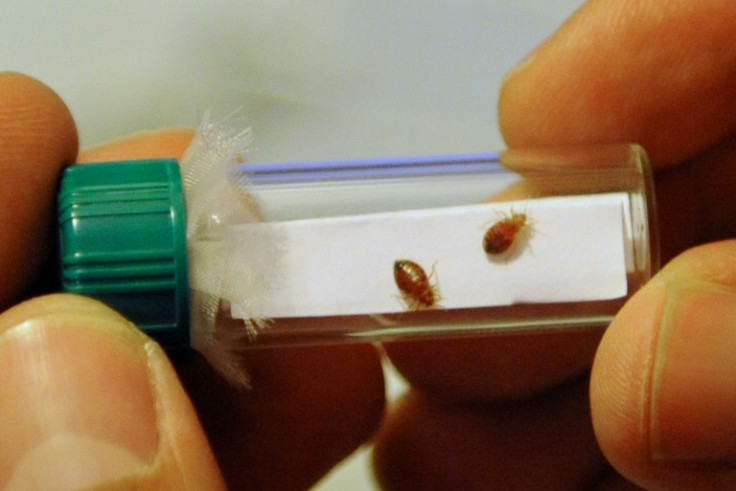Bedbug Detection Dogs on the Rise as UK Faces Growing Infestation Concerns
Despite a decline in bedbug spread during the COVID-19 crisis due to closures of hotels and travel restrictions, the reopening of the world has seen dormant populations bouncing back, albeit not yet to pre-pandemic levels.

In recent times, an unsettling resurgence of bedbug infestations in the UK has raised alarm among both hotel owners and homeowners. These elusive pests, which tend to hide in the nooks and crannies of bedrooms, have been making an unwelcome comeback as pandemic restrictions eased and the world began to reopen.
The decline in travel and the temporary closure of hotels during the COVID-19 crisis led to a decrease in bedbug incidents. However, with the resurgence of travel and hospitality, dormant bedbug populations are staging a comeback, albeit not yet reaching pre-pandemic levels.
This unexpected increase in bedbug activity has resulted in a wave of revulsion and even trauma for those unfortunate enough to be affected. The good news is that this resurgence has also ushered in a mini-boom for specialised firms in the UK that deploy trained sniffer dogs to detect bedbug infestations in various settings, from private homes to luxury hotels.
One such company leading the charge is K9 Detection Services, based in Solihull in the West Midlands. Their chief executive, Gary Jakeman, has two highly trained springer spaniels, Milo and Kobie, whose services are increasingly in demand by hotel owners and individuals who suspect they have fallen prey to these bloodsucking pests.
Jakeman commented on the surge in interest, stating: "We're getting more and more interest. We've probably had a 25 per cent increase in callouts since June. These dogs are spot on. There's very little that can get past a well-trained nose."
The dogs are capable of swiftly identifying or ruling out bedbug infestations, a task that would take hours when done manually using a torch and keen eyesight.

Training these sniffer dogs to detect bedbugs is no small feat, taking anywhere from a year to 18 months to accomplish. The training process mirrors that used for dogs trained to detect drugs, explosives and hidden stashes of money. In the case of bedbugs, the dogs identify a specific pheromone that the insects emit to help them congregate.
Dr Richard Naylor, the director of the Bed Bug Foundation, an organisation providing information about bedbugs, noted that the pheromone produces a pungent and distinctive odour, even detectable by humans in high concentrations.
The bedbug's feeding habits are peculiar, as they tend to stay close to their food source, rarely straying more than a meter from where they feed. This often leads them to congregate near the head of a bed, making it challenging to spot them visually.
However, trained dogs can accomplish this task in a matter of minutes, which can be a significant relief for those worried about infestations. Jakeman shared a few unique locations where his team's dogs have uncovered bedbugs, including TV remote controls and plug sockets.
For many individuals, bedbug infestations can be emotionally and mentally distressing, despite the insects being physically harmless. Naylor emphasised that the mental health implications of a bedbug infestation can be devastating.
It often results in isolation, shame and sleep deprivation, as individuals may sleep with the lights on and experience phantom sensations of insects crawling on their skin, even after the infestation has been eradicated.
Brian Leith, who operates BDL Canine Services in South Lanarkshire, works alongside his dog Benji, a springer-cocker spaniel mix. Leith and Benji respond to complaints about bedbugs in hotels, inspecting both the affected room and nearby areas.
Leith dispelled the misconception that bedbug infestations are solely linked to dirty or unsanitary conditions, stating: "It's nothing to do with dirty houses at all. I've been in five-star hotels that have got them."
The rise in bedbug infestations is attributed to several factors, including increased travel, a growing resistance to insecticides, and the purchase of second-hand furniture. While records show a legitimate increase in bedbug populations, the surge in complaints may also be fuelled by media coverage and overreactions to sightings in other countries.
Leith believes that the media's fascination with bedbugs has caused many people to panic unnecessarily. He humorously mentioned: "I'm not going to complain. It's good for business."
Dr Naylor predicts that bedbug cases in the UK will return to pre-pandemic levels within a couple of years.
However, another wave of worried calls for sniffer dogs may be on the horizon, as Jakeman suggests: "A lot of the time when we are called out, there are no bedbugs there. There is definitely a rise, but it's intensified because of the fear people have. I think it'll go berserk when the Rugby World Cup finishes and people return from France."
© Copyright IBTimes 2025. All rights reserved.






















